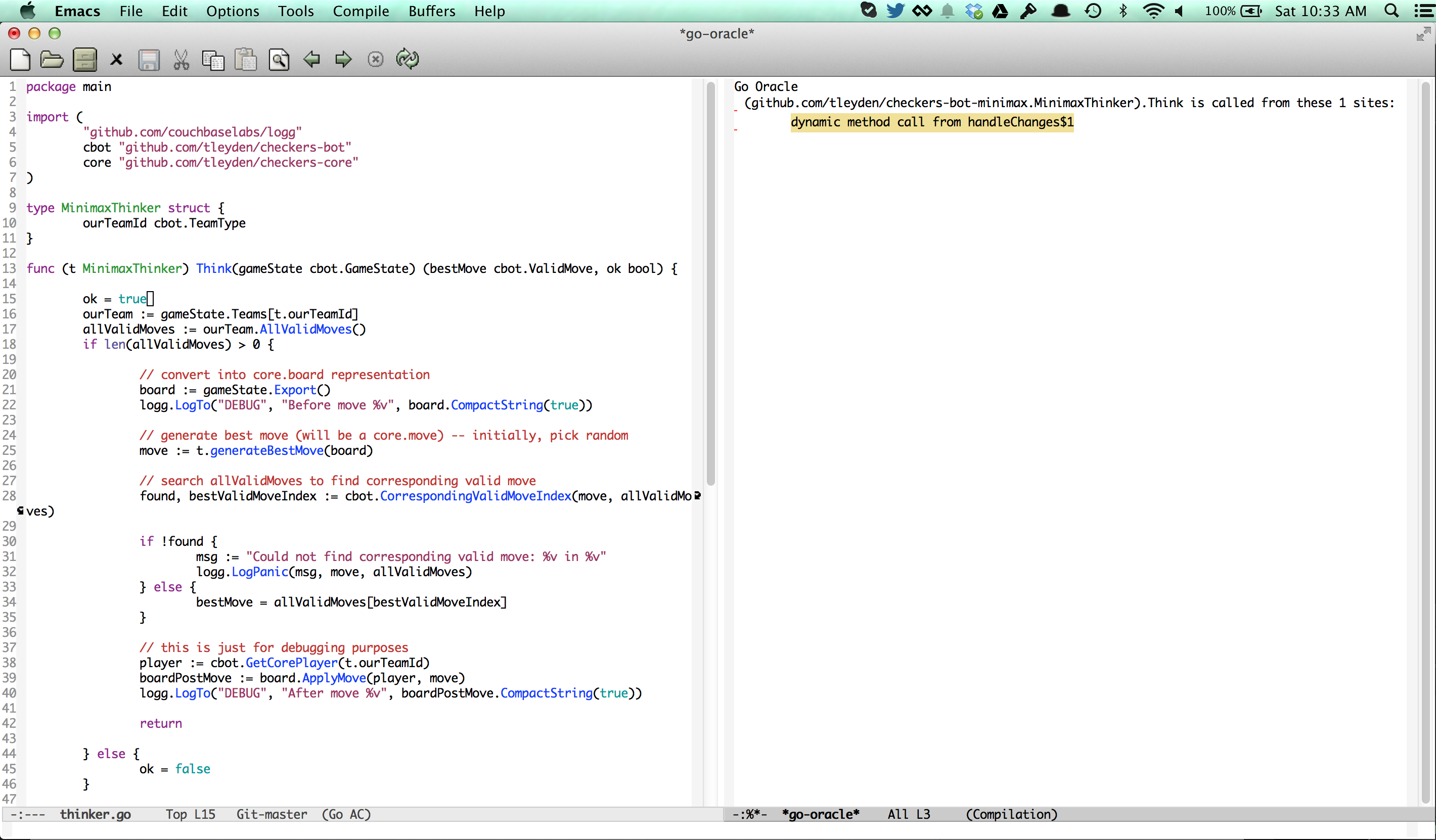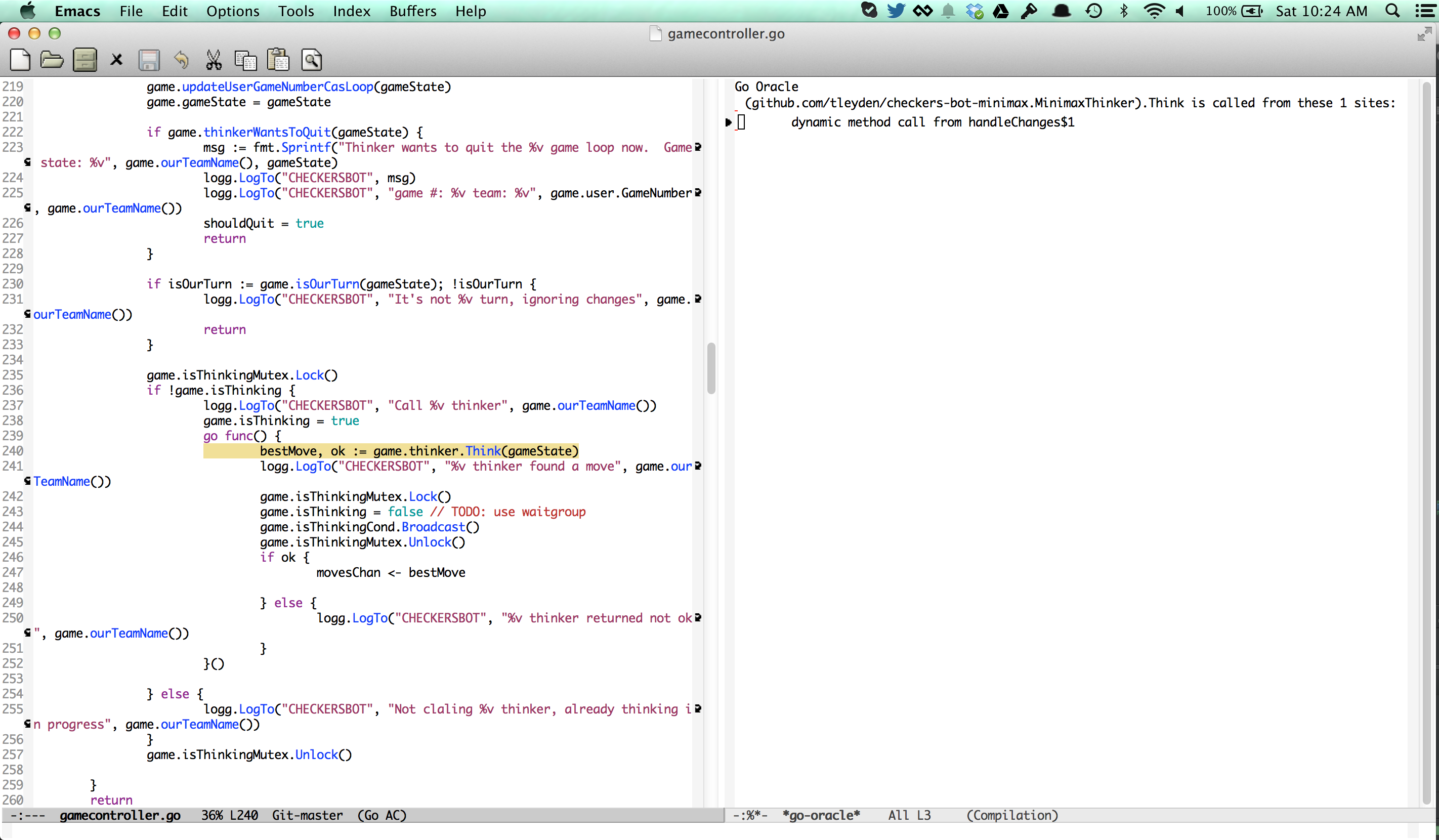This is a continuation of Part 1, so if you haven’t read that already, you should do so now.
goimports
The idea of goimports is that every time you save a file, it will automatically update all of your imports, so you don’t have to. This can save a lot of time. Kudos to @bradfitz for taking the time to build this nifty tool.
go get goimports with:
1
| |
Continuing on previous .emacs in Part 1, update your ~/.emacs.d/init.el to:
1 2 3 4 5 6 7 8 9 10 11 12 13 14 | |
Restart emacs to force it to reload the configuration
Testing out goimports
- Open an existing .go file that contains imports
- Remove one or more of the imports
- Save the file
After you save the file, it should re-add the imports. Yay!
Basically any time you add or remove code that requires a different set of imports, saving the file will cause it to re-write the file with the correct imports.
The Go Oracle
The Go Oracle will blow your mind! It can do things like find all the callers of a given function/method. It can also show you all the functions that read or write from a given channel. In short, it rocks.
Here’s what you need to do in order to wield this powerful tool from within Emacs.
Go get oracle
1
| |
Update emacs config
Update your ~/.emacs.d/init.el to:
1 2 3 4 5 6 7 8 9 10 11 12 13 14 15 16 | |
Restart Emacs to make these changes take effect.
Get a test package to play with
This package works with go-oracle (I tested it out while writing this blog post), so you should use it to give Go Oracle a spin:
1
| |
Set the oracle analysis scope
From within emacs, open $GOPATH/src/github.com/tleyden/checkers-bot-minimax/thinker.go
You need to tell Go Oracle the main package scope under which you want it to operate:
M-x go-oracle-set-scope
it will prompt you with:
Go oracle scope:
and you should enter:
github.com/tleyden/checkers-bot-minimax and hit Enter.
Nothing will appear to happen, but now Go Oracle is now ready to show it’s magic. (note it will not autocomplete packages in this dialog, which is mildly annoying. Make sure to spell them correctly.)
Important: When you call go-oracle-set-scope, you always need to give it a main package. This is something that will probably frequently trip you up while using Go Oracle.
Use oracle to find the callers of a method
You should still have the $GOPATH/src/github.com/tleyden/checkers-bot-minimax/thinker.go file open within emacs.
Position the cursor on the “T” in the Think method (line 13 of thinker.go):
And then run
1
| |
Emacs should open a new buffer on the right hand side with all of the places where the Think method is called. In this case, there is only one place in the code that calls it:
To go to the call site, position your cursor on the red underscore to the left of “dynamic method call” and hit Enter. It should take you to line 240 in gamecontroller.go:
Note that it actually crossed package boundaries, since the called function (Think) was in the main package, while the call site was in the checkersbot package.
If you got this far, you are up and running with The Go Oracle on Emacs!
Now you should try it with one of your own packages.
This is just scratching the surface — to get more information on how to use Go Oracle, see go oracle: user manual.
Troubleshooting
If you get this error when running go-oracle-callers:
1 2 3 4 5 6 7 8 9 | |
Fix it by running:
1
| |



